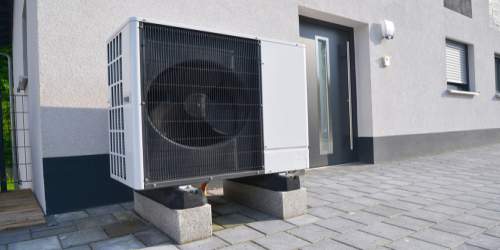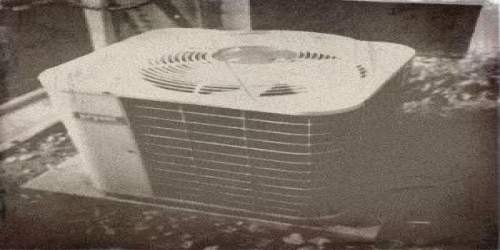Read Time : 3 Minutes
Heat Pump Efficiency Vs Temperature
You may be considering having a heat pump installed in your home. After all, they are a much greener way of providing your house with hot water and heating. However, before you commit, it is incredibly important to undertake a lot of research on the topic. On this page, we go through heat pump efficiency and temperature – helping you to make the right choice.
Are Heat Pumps Efficient?
Using the word efficiency when referring to heat pumps should generally be avoided. This is because the term has a very specific thermodynamic definition. Instead, the term coefficient of performance (COP) should be used instead. This is because it is used to describe the ratio of useful heat per work input. Most vapour compressed heat pumps use electrically powered motors / compressors for their work input.
COMPARE PRICES FROM LOCAL INSTALLERS
Compare prices from local companies fast & free
Enter your postcode to compare quotes from leading professionals. We promise to keep your information Safe & Secure. Privacy Policy
Heat Pumps and Energy Consumption
It is possible for heat pumps to reduce energy consumption by up to 72%, depending on the type of pump you are using and also how insulated your home is. The COP for heat pumps tends to range from 3.2 to 5.2, depending on the same criteria as before.
Using Them to Heat and Cool
It is possible to use heat pumps to keep your home warm in the winter months, as well as heat your hot water. However, they can also be used to keep everything nice and cool in the summer. This can be a particularly handy feature for commercial buildings, as it incorporates heating and air conditioning into one.
Heat Pump Temperatures
It is common knowledge that heat pumps produce a lower level of heat over a longer period of time, giving your home a form of slow-release heating. It also depends heavily on the amount of insulation in your home. If you have poor insulation, a larger flow will be required, which reduces efficiency and increases running costs. If you have a well-insulated home, then a lower flow is required. This will increase efficiency and reduce the running costs. Insulation is a much more critical aspect than many people think, and it should not be taken lightly. If you want the full benefits of a heat pump, you need to first ensure that your home is properly insulated. The type of heat pump you are using can also have quite a large impact on the amount of heat generated as well. Ground source heat pumps take heat from the ground, which is where there is natural warmth all the time. This means that the pump tends to have a consistent source of heat at all times, which is in contrast to an air source heat pump. These tend to be outside and exposed to cold air. This is a feature that can reduce the overall efficiency as cold air can lead to freezing. This will activate a defrost setting which uses a great deal of energy, reducing the amount that is channelled to your home. As a result, they tend to be less efficient at heating your home than a gas boiler system, but compared to all other forms of conventional heating, heat pumps come out on top. Heat pumps don’t tend to have enough power to fill radiators, and so they can take a long time to heat up and may not always produce enough heat to keep the house warm. As a result, it is highly recommended that you have underfloor heating installed in your home for the best results. It is faster to heat up and provides better rates of distribution – so your home will be warmer than if you were using radiators. However, if you do decide to keep using radiators, it is important to remember that they will not be hot to touch when they are on. This doesn’t mean they aren’t working, it’s just because heat pumps work with slow-release energy levels.
Getting the Best Coefficient of Performance
The COP will increase as the temperature difference decreases between the heat source and the destination. It can be maximised at the time of design by selecting a heating system that requires a low final water temperature, such as underfloor heating, as well as choosing a heat source with a higher average temperature, such as the ground. Domestic hot water, alongside conventional heating methods, require high water temperatures. This reduces the COP that can be reached, which will affect the choice of heat pump technology that is used. The key things you should remember when it comes to COP is that your home should be well-insulated, underfloor heating is the most effective way to distribute the heat produced by the pumps, and that ground source heat pumps are the most effective option.
Want to Know More?
Have you found yourself interested in heat pumps? If you want to know more then make sure you head to our Renewable Shop where you can find our full range of products, each with the relevant information. Search our national database of installers, or simply give us a ring using the number at the top of this page and have a chat.
Find a local installer
Welcome to the biggest directory of UK renewable energy companies





 How does a Heat Pump Work
How does a Heat Pump Work








